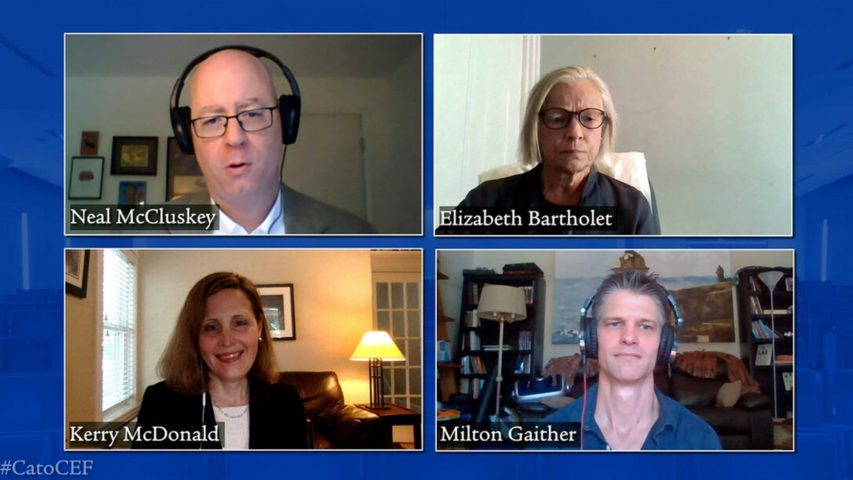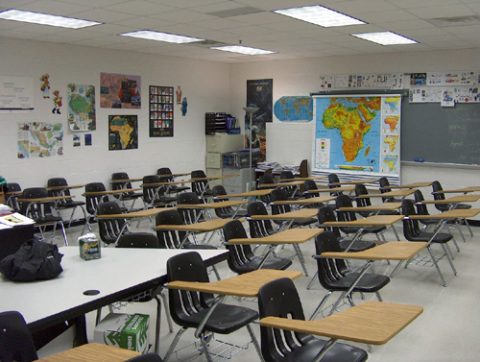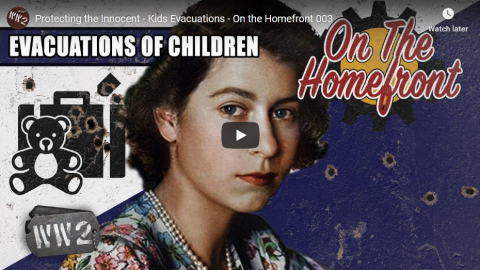At the heart of big-city exoduses is a process that I call accumulative decay. When schools are rotten and unsafe, neighborhoods become run-down and unsafe, and city services decline, the first people to leave are those who care the most about good schools and neighborhood amenities and have the resources to move. As a result, cities lose their best and ablest people first. Those who leave the city for greener pastures tend to be replaced by people who don’t care so much about schools and neighborhood amenities or people who do care but don’t have the means to move anywhere else. Because the “best” people — those who put more into the city’s coffer than they take out in services — leave, politicians must raise taxes and/or permit city services to deteriorate. This sets up the conditions for the next round of people who can do better to leave. Businesses — which depend on these people, either as employees or as customers — also begin to leave. The typical political response to a declining tax base is to raise taxes even more and hence create incentives for more businesses and residents to leave. Of course, there’s also mayoral begging for federal and state bailouts. Once started, there is little to stop the city’s downward spiral.
Intelligent mayors could prevent, halt and perhaps reverse their city decline by paying more attention to efficiency than equity. That might be politically difficult. Regardless of any other goal, mayors must recognize that their first order of business is to retain what economists call net positive fiscal residue. That’s a fancy term for keeping those people in the city who put more into the city’s coffers, in the form of taxes, than they take out in services. To do that might require discrimination in the provision of city services — e.g., providing better street lighting, greater safety, nicer libraries, better schools and other amenities in more affluent neighborhoods.
As one example, many middle-class families leave cities because of poor school quality. Mayors and others who care about the viability of a city should support school vouchers. That way, parents who stay — and put a high premium on the education of their children — wouldn’t be faced with paying twice in order for their kids to get a good education, through property taxes and private school tuition. Some might protest that city service discrimination is unfair. I might agree, but it’s even more unfair for cities, once the magnets of opportunities for low-income people, to become economic wastelands.
Walter E. Williams, “A Mayor’s Most Important Job”, Townhall, 2018-04-18.
July 22, 2020
QotD: Urban decline
July 19, 2020
QotD: How to raise a God-Emperor son
When my now-adult daughter was a child, another child once hit her on the head with a metal toy truck. I watched that same child, one year later, viciously push his younger sister backwards over a fragile glass-surfaced coffee table. His mother picked him up, immediately afterward (but not her frightened daughter), and told him in hushed tones not to do such things, while she patted him comfortingly in a manner clearly indicative of approval. She was out to produce a little God-Emperor of the Universe. That’s the unstated goal of many a mother, including many who consider themselves advocates for full gender equality. Such women will object vociferously to any command uttered by an adult male, but will trot off in seconds to make their progeny a peanut-butter sandwich if he demands it while immersed self-importantly in a video game. The future mates of such boys have every reason to hate their mothers-in-law. Respect for women? That’s for other boys, other men — not for their dear sons.
Jordan Peterson, 12 Rules for Life: An Antidote to Chaos, 2018.
July 14, 2020
Then they came for the nursery rhymes
James Lileks illustrates just how easy it is to construct a case to cancel a children’s song:
At some point the mob will run out of things to cancel. All the low-hanging fruit1 will have been plucked to make smoothies for the commune. Wrongthink professors, authors, movies, newspaper columnists — easy enough. After that? Well, if you’re really going to root out systematic systemism, everything has to go. This means someone will eventually be tasked with canceling children’s songs, or recasting them for the new era. Pity the person who has to find the problematic problems in “Twinkle, Twinkle, Little Star.”
It’s not that hard. Take the first line: The very idea that stars are supposed to twinkle locks them into a societally prescribed mode of behavior. Expecting a star to twinkle is like telling a strange woman on the subway to smile. Strong, troublemaking stars explode! The very idea that we want “little” stars to engage in performative “twinkling” negates the life experience of massive gas giants like Betelgeuse. In fact “twinkling” itself strips the star’s identity and expresses it through the eyes of the beholder, who mistakes the effect of the atmosphere on star observation for the star’s true nature.
Okay, now we’re getting somewhere. Whew! Turns out there’s a lot to unpack.
How I wonder what you are.
Well, you wouldn’t if there weren’t racism in STEM that kept people out, but no, that’s not right. STEM is bad because it uses the Western empirical model to determine “facts.” Better: The speaker’s questions about the star arise from the suppression of the rich history of Arab astrological knowledge. So it’s a lesson in the ways Islamophobia prevents a greater understanding of the world. Next!
Up above the world so high, like a diamond in the sky . . .
Hold on, hold on … okay, got it. The star’s remoteness is a metaphor for the entrenched power system and encourages a sense of powerlessness. The choice of a “diamond” is intentional, reminding the child of the commodification of natural resources and the brutal economies of the industries that extract them …
1. Just this morning, I saw a call to cancel the expression “low-hanging fruit” because it might remind people of lynching.
June 20, 2020
Opposition to home schooling is merely a side-issue for those who want government to control everything
Kerry McDonald recently took part in a debate with a Harvard academic who has called upon governments to ban homeschooling. She’s written up some of the things she took away from the discussion and from the many questions submitted before the event:
While this event was framed as a discussion about homeschooling, including whether and how to regulate the practice, it is clear that homeschooling is just a strawman. The real issue focuses on the role of government in people’s lives, and in particular in the lives of families and children. In her 80-page Arizona Law Review article that sparked this controversy, Professor Bartholet makes it clear that she is seeking a reinterpretation of the US Constitution, which she calls “outdated and inadequate,” to move from its existing focus on negative rights, or individuals being free from state intervention, to positive rights where the state takes a much more active role in citizens’ lives.
During Monday’s discussion, Professor Bartholet explained that “some parents can’t be trusted to not abuse and neglect their children,” and that is why “kids are going to be way better off if both parent and state are involved.” She said her argument focuses on “the state having the right to assert the rights of the child to both education and protection.” Finally, Professor Bartholet said that it’s important to “have the state have some say in protecting children and in trying to raise them so that the children have a decent chance at a future and also are likely to participate in some positive, meaningful ways in the larger society.”
It’s true that the state has a role in protecting children from harm, but does it really have a role in “trying to raise them”? And if the state does have a role in raising children to be competent adults, then the fact that two-thirds of US schoolchildren are not reading proficiently, and more than three-quarters are not proficient in civics, should cause us to be skeptical about the state’s ability to ensure competence.
I made the point on Monday that we already have an established government system to protect children from abuse and neglect. The mission of Child Protective Services (CPS) is to investigate suspected child abuse and punish perpetrators. CPS is plagued with problems and must be dramatically reformed, but the key is to improve the current government system meant to protect children rather than singling out homeschoolers for additional regulation and government oversight. This is particularly true when there is no compelling evidence that homeschooling parents are more likely to abuse their children than non-homeschooling parents, and some research to suggest that homeschooling parents are actually less likely to abuse their children.
Additionally, and perhaps most disturbingly, this argument for more state involvement in the lives of homeschoolers ignores the fact that children are routinely abused in government schools by government educators, as well as by school peers. If the government can’t even protect children enrolled in its own heavily regulated and surveilled schools, then how can it possibly argue for the right to regulate and monitor those families who opt out?
June 7, 2020
QotD: The American education system
[A]ll levels of our education system are extremely wasteful and ineffective. After spending more than a decade in class and burning up over $100,000 in taxpayer money, most Americans know shockingly little. About a third of adults are barely literate or numerate. Average adult knowledge of the other standard academic requirements — history, social studies, science, foreign languages — is near-zero. The average adult with a B.A. has the knowledge base you’d intuitively expect of the average high school graduate. The average high school graduate has the knowledge base you’d intuitively expect of the average drop-out. This is the fruit of a trillion taxpayer dollars a year.
Bryan Caplan, “Is Education Worth It? My Opening Statement for the Caplan-Hanushek Debate”, The Library of Economics and Liberty, 2018-02-19.
May 29, 2020
May 26, 2020
“No more pencils, no more books…”
In the latest edition of the Libertarian Enterprise, Sean Gabb considers the demands from the British government to quickly re-open the schools over the concerns of the educational unions and administrations:
The latest turn in an increasingly dull coverage of the Coronavirus panic is a proposed reopening of the schools. The Government wants them open as soon as possible for at least some of their students. The teaching unions are bleating that no one should go back until their members can be sure of not catching anything. The headmasters are worried about compliance with the social distancing rules. As a conservative of sorts, I think I am supposed to side with the Government and the pro-Conservative journalists — denouncing the teachers as a pack of idlers where not cowards, and insisting that those factories of essential skills must be set back in full production before the summer holidays. Of course, my settled view as a libertarian is that the teaching unions deserve all the support I have never so far given them. The schools must remain closed until no one is in any danger of so much as an attack of hay fever. The schools have been largely closed since the end of March. The longer they stay largely closed, the better. Best of all if they never reopen — or never reopen as they have been since attendance was made compulsory at the end of the nineteenth century.
I quote John Stuart Mill on compulsory schooling:
A general State education is a mere contrivance for moulding people to be exactly like one another: and as the mould in which it casts them is that which pleases the predominant power in the government, whether this be a monarch, a priesthood, an aristocracy, or the majority of the existing generation; in proportion as it is efficient and successful, it establishes a despotism over the mind, leading by natural tendency to one over the body.
(On Liberty, 1859, Chapter 5, “Applications.”)This has always been the case in some degree. The spread of state schooling in England after 1870, and particularly after it was made compulsory in 1880, and then extended in 1902, is probably inseparable from the nationalist hysteria that drove our participation in the Great War. It also may explain the perverse belief, general until the 1970s, in the unique goodness and honesty of our ruling class. This being said, reasonable patriotism is to be encouraged; and, compared with others, our ruling class was not until recently so bad. A further point is that compulsory state schooling used to be reasonably effective at giving the mass of people a basic education. By 1960, most people were literate and numerate. They could spell and write grammatical prose. They had some exposure to the English classics, and the means of exploring these to greater depth if they wished. They had some understanding of history and the sciences. You can tell much about the quality of a people by examining what is read and watched. Looking at the popular arts in England during much of the twentieth century explains why this passage in On Liberty was less often discussed than his arguments for freedom of speech. Mill was right in the abstract. He could be shown to be right in certain particulars. But the evils of compulsory state schooling were mostly potential.
All this, however, is in the past. Since about 1980, schooling of all kinds has been made into a concerted means of indoctrination. The cultural leftists have captured both the classrooms and the curriculum. I will not elaborate on this claim. Some will argue over terminology, some over the merits of the capture, but hardly anyone denies the broad fact. One of the main functions of modern schooling is to bring about and to protect a radical departure from the old intellectual culture of this country.
Much of this departure has been achieved by preaching in the classroom. But it is supplemented by a growing bureaucracy of surveillance. The teachers themselves are watched, and they can be punished for dissenting from the established discourse. There is, for example, the Government’s Prevent strategy, which applies to the whole state machinery. Its purpose is to identify and root out anyone defined as a “political extremist.” Anyone identified as such is effectively banned from working with children and young people, and probably in the state sector as a whole.
May 15, 2020
Protecting the Innocent – Kids Evacuations – On the Homefront 003
World War Two
Published 14 May 2020The European powers may be at war but there’s now thing they can agree on: their young must be protected. So, before the first RAF or Luftwaffe bombs were even dropped on cities, countries are drawing up plans to save as many lives of their youth as they possibly can.
Join us on Patreon: https://www.patreon.com/TimeGhostHistory
Or join The TimeGhost Army directly at: https://timeghost.tvFollow WW2 day by day on Instagram @World_war_two_realtime https://www.instagram.com/world_war_t…
Between 2 Wars: https://www.youtube.com/playlist?list…
Source list: http://bit.ly/WW2sourcesHosted by: Anna Deinhard
Written by: Isabel Wilson and Spartacus Olsson
Director: Astrid Deinhard
Producers: Astrid Deinhard and Spartacus Olsson
Executive Producers: Astrid Deinhard, Indy Neidell, Spartacus Olsson, Bodo Rittenauer
Creative Producer: Joram Appel
Post-Production Director: Wieke Kapteijns
Research by: Isabel Wilson
Edited by: Mikołaj Cackowski
Sound design: Marek Kamiński
Map animations: Eastory (https://www.youtube.com/c/eastory)Sources:
USHMM
Bundesarchiv
IWM LN 6194, HU 36871, D 2238, D 10457, D 2592, D 5081, D 24903, IWM D 15530, D 2045, HU 3323, Art.IWM PST 3095, Art.IWM PST 13854, Art.IWM PST 15100, D 9211, D 824, D 257, D 5665, D 2224, D 1939A, F 4422
Portrait of John Anderson, courtesy Yousuf Karsh, Dutch National Archives
from the Noun Project: students by Piotrek Chuchla, mother by Mr. Minuvi, Pregnant by Wojciech Zasina, bag by Nabilauzwa, Gas Mask by Nico Ilk from the Noun Project, Underwear by The Icon Z, baby clothes by Llisole, espadrilles shoes by Edwin PM, socks by Анна Пасечная, Toothbrush by amantaka, Comb by Randall Barriga, towel by Pixelz Studio, handkerchief by Vectors Market, soap by Jae Deasigner, coat by Ilham Juliandi, Food by Atif ArshadSoundtracks from the Epidemic Sound:
Reynard Seidel – “Deflection”
Johannes Bornlof – “The Inspector 4”
Johannes Bornlof – “Deviation In Time”
Farell Wooten – “Blunt Object”
Jo Wandrini – “Puzzle Of Complexity”
Gavin Luke – “Drifting Emotions 3”
Howard Harper-Barnes – “Prescient”
Fabien Tell – “Last Point of Safe Return”
Andreas Jamsheree – “Guilty Shadows 4”Archive by Screenocean/Reuters https://www.screenocean.com.
A TimeGhost chronological documentary produced by OnLion Entertainment GmbH.
From the comments:
World War Two
5 hours ago (edited)
Welcome back to another episode of On the Homefront! Researching this episode about evacuations was a fun one to dive to because in the UK, we learn about about children evacuees during the war but of course what we’re not taught is the mass scale of this operation. For each of the millions of children displaced during the war, they each came away with it with their own story and I hope I’ve captured that here. Looking forward to reading your comments! Be sure to follow us over on instagram at https://www.instagram.com/world_war_two_realtime/ and let us know what other aspects of life on the homefront you’d like to hear about!Cheers,
Izzy
May 2, 2020
April 21, 2020
Homeschooling is bad and should be tightly regulated or banned, says Harvard Professor of Karenism
An article in Harvard Magazine draws heavy fire from people who do not automatically demand to speak to the manager:
Harvard Magazine decided that this moment was the PERFECT time to take a gigantic shit on homeschooling parents. Author Erin O’Donnell decided write a piece on Elizabeth Bartholet, a “professor” who knows the best way to handle child education, and that is to turn them over to the State, immediately. Her rationale? Parents are simply too stupid to educate children without the state looking over their shoulder.
Yet Elizabeth Bartholet, Wasserstein public interest professor of law and faculty director of the Law School’s Child Advocacy Program, sees risks for children — and society — in homeschooling, and recommends a presumptive ban on the practice. Homeschooling, she says, not only violates children’s right to a “meaningful education” and their right to be protected from potential child abuse, but may keep them from contributing positively to a democratic society.”
“We have an essentially unregulated regime in the area of homeschooling,” Bartholet asserts. All 50 states have laws that make education compulsory, and state constitutions ensure a right to education, “but if you look at the legal regime governing homeschooling, there are very few requirements that parents do anything.” Even apparent requirements such as submitting curricula, or providing evidence that teaching and learning are taking place, she says, aren’t necessarily enforced. Only about a dozen states have rules about the level of education needed by parents who homeschool, she adds. “That means, effectively, that people can homeschool who’ve never gone to school themselves, who don’t read or write themselves.” In another handful of states, parents are not required to register their children as homeschooled; they can simply keep their kids at home.”
This practice, Bartholet says, can isolate children. She argues that one benefit of sending children to school at age four or five is that teachers are “mandated reporters,” required to alert authorities to evidence of child abuse or neglect. “Teachers and other school personnel constitute the largest percentage of people who report to Child Protective Services,” she explains, whereas not one of the 50 states requires that homeschooling parents be checked for prior reports of child abuse. Even those convicted of child abuse, she adds, could “still just decide, ‘I’m going to take my kids out of school and keep them at home.'”
Bartholet goes on to cite an example of one woman, who was raised by “Idaho survivalists” and was working in the family business instead of getting an education. Conveniently, while lauding “teachers and other school personnel” as mandated reporters, Bartholet fails to cite or even acknowledge that there is plenty of child abuse that happens on school property, by school employees, and maybe there are just evil people who do evil things to children because they have the opportunity to do so. Giving someone the title of “mandated reporter” does not magically make them into an upstanding citizen and defender of children.
Bartholet – and by extension, O’Donnell – makes no rational argument against homeschooling. It’s only her gut feeling that if the nanny state isn’t over the shoulder, trying to mold “young skulls full of mush” (as Rush Limbaugh has said more than once) into educated and functional adults, then there could be shenanigans afoot! Why, these children might end up RELIGIOUS. *GASP!*
Shruti Rajagopalan noted that the original illustration (which appears to have been corrected since the image at the top of this post was published) included the word “ARITHMATIC” on the spine of one of the books.
April 15, 2020
The Industrial Revolution and the Society for the Encouragement of Arts, Manufactures and Commerce
In the latest from Anton Howes’ Age of Invention newsletter, we are introduced to the Society for the Encouragement of Arts, Manufactures and Commerce:
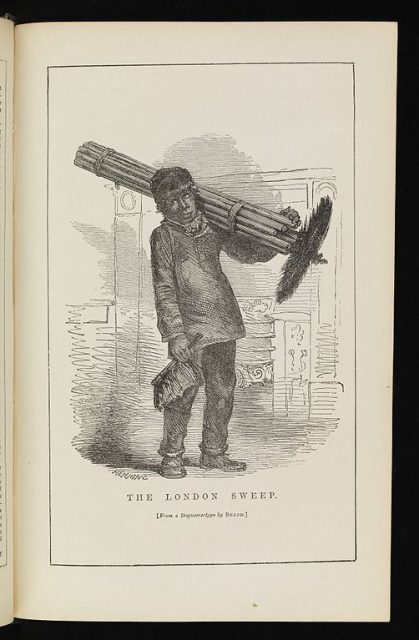
The London Sweep (from a Daguerreotype by BEARD).
Image from London labour and the London poor : a cyclopaedia of the condition and earnings of those that will work, those that cannot work, and those that will not work, 1851, via the Wellcome Collection.
When we think of the British Industrial Revolution, the image that springs to mind tends to be of soot-belching factories and foundries, of child labour and squalid cities. The inventors who spring to mind tend to be James Watt and his steam engines, or Richard Arkwright and his cotton-spinning machines. But what people tend to forget is that the Industrial Revolution was unleashed by a much broader tide of accelerating innovation — as I never tire of repeating, it touched everything from agriculture to watchmaking, and everything inbetween. Just as some inventors pioneered the use of factories, other inventors sought solutions to industrialisation’s social ills.
Last time, I mentioned the Society for the Encouragement of Arts, Manufactures and Commerce, set up in 1754 in a London coffee house (the Society of Arts for short). What’s so fascinating about the organisation — which still exists today, now called “Royal” — is that it was closely involved with many of the more socially-oriented innovations of the period. By this, I mean the kinds of inventions that were rarely immediately profitable, but which aimed to save lives, to alleviate suffering, or to remedy some other social ill. The Society advertised premiums — cash prizes or honorary medals — for solutions to the problems that its members identified. And it offered similar rewards, which they called bounties, for unsolicited inventions.
It awarded a bounty of fifty guineas and a gold medal to Henry Greathead, for example, one of the claimants for the invention of the lifeboat. It gave another fifty guineas to a sergeant of the Royal Artillery, John Bell, for a method of firing a rope and grapple by mortar from a ship to the shore, to save people on board from shipwreck during storms. (Some years later, it even gave a gold medal to another inventor for a device that did the opposite, firing from shore to ship.) The Society awarded a medal to a Sheffield schoolmaster, John Hessey Abraham, for a magnetic apparatus that would prevent metal dust getting into the eyes and lungs of workers employed in grinding the points of needles. And in 1767 it awarded a bounty to a clockmaker, Christopher Pinchbeck, for a safer crane — cranes at the time were like gigantic hamster wheels, but for humans. When lines snapped, the results could be fatal, so Pinchbeck added a pneumatic braking mechanism.
The list goes on — in all, over the course of about a century, the Society of Arts awarded over two thousand premiums and bounties for inventions. But there is one that really stands out: a premium for the invention of a mechanical means of cleaning chimneys. With such an invention, the Society hoped to abolish the employment of children, sometimes as young as 4, who were forced to climb up inside chimneys in order to clean them. These children were sometimes abducted by the master chimney sweeps, and frequently perished in horrific accidents or of soot-induced cancers. Strikingly, the use of climbing boys was thought to be unique to Britain — the “peculiar disgrace of England” as the campaigners put it (though I don’t think this was quite true). The Society’s idea was that if a technological replacement could be found, then the case for outright abolition could be made — they wanted to create a machine to take the children’s jobs.
The Society of Arts played its role with the offer of a premium, but it acted alongside another campaign run by a few of its members, who ran the snappily titled “Society for Superseding the Necessity of Climbing Boys, by Encouraging a New Method of Sweeping Chimnies, and for Improving the Condition of Children and Others Employed by Chimney Sweepers”, founded in 1803 at the London Coffee-House on Ludgate Hill. Let’s call it the SSNCB for short. There had been earlier campaigns to abolish the use of climbing boys, one of the most prominent being run by Jonas Hanway (a prominent philanthropist, also a member of the Society of Arts, whose various claims to fame include being the first man in London to sport an umbrella). But the 1803 campaign was to prove the most successful, drawing on wider political support. The SSNCB’s key members included William Wilberforce, who later became famous for his zeal in abolishing the slave trade.
April 7, 2020
QotD: The universal plight of women in pre-modern times
Because giving birth was such a high-risk enterprise, and because so many of the products of that enterprise died before payback of the [pun intended, I think] labor involved in bringing them to the world, it was THE most important work of society. Those members able to do it had to be kept in such a situation that it allowed them to maximize that one thing they could do.
As for “the property of their husbands, etc, etc, blah blah blah” work was so brutal and hard, and providing for a family so difficult, that yes, a man wanted to make sure the children he supported were his own.
Also, because of very early (many women married before even 18) death in childbirth, etc, most women skewed younger than men as a population, which would encourage a certain degree of paternalism. On top of that, hate to tell you, but women while hormonal are often not fully rational. We can sort of compensate for it, but one of the pregnancy hormones is SUPPOSED to make you fat, dumb and happy.
I don’t know if most women need a minder while pregnant, but from both personal experience and watching friends go through it, I imagine many women do.
It is therefore only natural that in a society where most women are pregnant most of the time, men would view it was their duty to look after the puir confused things.
When feminists assume that back in a time with no contraceptive, high child mortality and an horrendous death toll of pregnancy, women should have been recognized as the equals of men, and that men were being evil villains for not doing that, they are demonstrating an astonishingly blind and ideological view of history.
In fact, even back in the middle ages and before SOME women were considered the intellectual equals of men. (And sometimes the military equals.) There are very few of them, again, not because The Man was keeping them down, but because the women attracted to intellectual or military pursuits are (like men) a minority and on top of that they tended to be either unmarried, childless, or the percentage of women not much affected by pregnancy. I.e. a minority of minorities.
Women started making advances in what was considered, traditionally, male realms, like science or scholarship, (the others … well … there is a problem with upper body strength. Sure. Some women. Again a minority of a minority) or being able to vote when two twin advances occurred: the first was the curbing of infant mortality. When it became obvious (after a generation or so) that most of your babies would survive, it was possible for women to spend only a tiny minority of their lives pregnant.
The second was contraception that was cheap, easily available, and safe. Yeah, okay, I have certain issues with the pill, because the medical issues of using it long term are only now showing up in the population at large. That’s fine.
It remains that even the early “horse-dose” pill was safer than anything else anyone else had ever come up with for women to avoid getting pregnant all the time.
Sarah Hoyt, “Wrong Battle, Insane Tactics”, According to Hoyt, 2018-01-15.
March 29, 2020
Wood toys to make with your kids
Rex Krueger
Published 25 Mar 2020Kids stuck at home? Get them into the shop and make these fun wooden toys.
More video and exclusive content: http://www.patreon.com/rexkrueger
Get the FREE Plans: https://www.rexkrueger.com/store/free…These plans are free so people won’t need to spend more money during this crisis. As I come up with new projects, I’ll make other plans low-cost or free.
Choosing wood for your projects: https://www.youtube.com/watch?v=2mWLJ…
Tools in this build (affiliate):
Blue Kreg Measuring Jig: https://amzn.to/3bnJWRL
Multi-Blade Pocket Knife: https://amzn.to/3doLZH2
Triangular File: https://amzn.to/2wwZmUU
Stanley Sweetheart Smoothing Plane: https://amzn.to/2J83w8u
(Looks good so far; full review to follow.)Wood Work for Humans Tool List (affiliate):
Stanley 12-404 Handplane: https://amzn.to/2TjW5mo
Honing Guide: https://amzn.to/2TaJEZM
Green buffing compound: https://amzn.to/2XuUBE2
Cheap metal/plastic hammer for plane adjusting: https://amzn.to/2XyE7Ln
Spade Bits: https://amzn.to/2U5kvML
Metal File: https://amzn.to/2CM985y (I don’t own this one, but it looks good and gets good reviews. DOESN’T NEED A HANDLE)
My favorite file handles: https://amzn.to/2TPNPpr
Block Plane Iron (if you can’t find a used one): https://amzn.to/2I6V1vh
Stanley Marking Knife: https://amzn.to/2Ewrxo3
Mini-Hacksaw: https://amzn.to/2QlJR85
Blue Kreg measuring jig: https://amzn.to/2QTnKYd
Blue Handled Marples Chisels: https://amzn.to/2tVJARY
Suizan Dozuki Handsaw: https://amzn.to/3abRyXB
Vaughan Ryoba Handsaw: https://amzn.to/2GS96M0
Glue Dispenser Bottle: https://amzn.to/30ltwoB
Orange F Clamps: https://amzn.to/2u3tp4X
Blue Painters Tape: https://amzn.to/35V1Bgo
Round-head Protractor: https://amzn.to/37fJ6oz
5 Minute Epoxy: https://amzn.to/37lTfjK
Dewalt Panel Saw: https://amzn.to/2HJqGmOPlans, t-shirts, and hoodies: http://www.rexkrueger.com/store
Get my woodturning book: http://www.rexkrueger.com/book
Follow me on Instagram: @rexkrueger
March 7, 2020
KidLit is woke, woke, woke
Ed West on the amazing amount of propaganda that has been pumped into books for children:
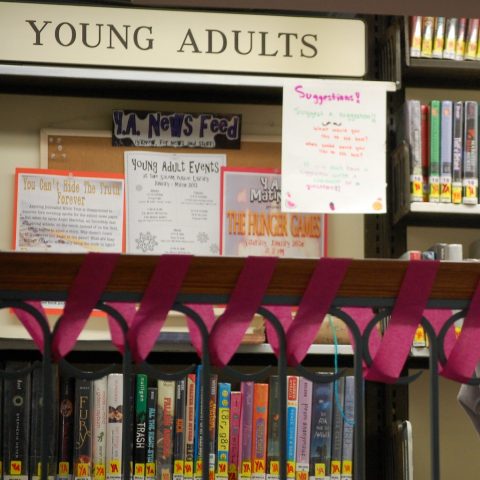
“New Spin on YA” by Salem (MA) Public Library is licensed under CC BY-NC-ND 2.0
When my daughters were around six and seven, they started French classes at a children’s library in our borough; I had been to our local library countless times but had mainly confined myself to the infant section, and older children’s books were something of a revelation. The entire front desk area was made up of hagiographies of Barack Obama and Nelson Mandela.
And hagiography is the most accurate term: these books were just like the ones I used to read in church. Here Blessed Nelson forgave his jailors, here St Barack healed America of its racial sins – and these are just a couple of examples.
It was a bit of a surprise — learning just how much the tone of kids’ books had changed since I was young and we wore onions on our belts. Nowadays, progressive politics is ever-present in children’s books. Which is fine, if you’re a believer; but if you’re a conservative, you’re faced with raising your children in a culture which is filled with messages you disagree with — sometimes misleading, sometimes anecdotally true but not representative, often just anti-wisdom, giving children the worst possible advice in life. And it’s becoming worse: since about 2016, children’s books have grown way more explicitly political.
Last month, a friend went to Tate Modern and took a picture of the young children’s section. Among the books on display are biographies of Greta Thunberg, something called Queer Heroes, another work called The Rainbow Flag, books about refugees, the bestselling Good Night Book for Rebel Girls — and its countless imitators. Whether you support it or not, this is propaganda; the aim is to raise a generation of progressives just as those Lives of the Saints were designed to bring forth young Christians.
And it works. Conservative ideas are very much in retreat, the subject of a brilliant new book I recently read (which, admittedly, I also wrote).
From a very young age, children are read books and shown films that teach them the core progressive messages: that we are all basically good and only behave badly because of circumstances; that borders and barriers are bad, stereotypes are wrong and girls ought to adopt traditional male gender roles if they want to be respected.
Stereotype inaccuracy is a popular idea — and a false one; in so many kids’ stories the unusual stranger or alien or wild animal who turns up in the neighbourhood will defy the small-minded pessimist who expects the worst. When it comes to gender politics, no self-respecting children’s book in the 21st century has girls aspiring towards being a princess and living happily ever after; to the post-ironic upper-middle-class parents who are the publishers’ main audience, that would just be lame.
March 5, 2020
“Maybe … Trump’s victory caused an unusual number of spontaneous abortions in Ontario”
Colby Cosh on the recently published findings of a p-hacking conspiracy study on how the election of President Donald Trump was reflected in the birth ratio of liberals in Ontario:

Front view of Toronto General Hospital in 2005. The new wing, as shown in the photograph, was completed in 2002.
Photo via Wikimedia Commons.
On Monday there came a surprising piece of science news from BMJ Open, an open-access title affiliated with the British Medical Journal. It seems two researchers from Mount Sinai Hospital in Toronto, an endocrinologist and a statistician, have convinced themselves that the election of Donald Trump to the American presidency in November 2016 had a nerve-shattering effect on Ontario. The province of Ontario, that is, not the Los Angeles suburb.
Trump’s victory, according to the researchers, was so awful that, like a war or a disaster, it briefly altered the sex ratio in live births in the province. This is, I should say, a fairly well-established effect of extreme social traumas. When mothers experience physiological stress, the uterine environment becomes less hospitable, and male fetuses, more vulnerable to such changes, become less likely to survive pregnancy. (This makes sense from a Darwinian standpoint, because girls are more valuable than boys in replacing population after a calamity.)
In 2020 nobody should need me to say that a cute, counterintuitive scientific “result” like this, appearing in the newspapers on literally the day of its publication, should be greeted with extreme skepticism. The sex ratio at birth, always expressed in medical literature as a ratio of boys to girls, tends to hover around 1.06 under natural circumstances. (Even in an advanced civilization, things even out within the age cohort over the next 20 years as the lads explore dirt bikes, rock fights, and roofs.)
The Mount Sinai researchers, Ravi Retnakaran and Chang Ye, had records of the sexes of all children born in Ontario from April 2010 to October 2017. Even in a place as large as Ontario, the ratio naturally bounces around randomly between 1.1 and 1.0, and there are seasonal effects that the duo corrected for.
There is no obvious signature of a Trump effect in a scatterplot of the adjusted data, which serves as a warning that the effect being claimed may be an artifact of analysis. But when you apply “segmented regression” using the same parameters as Retnakaran and Ye, you find that the (unadjusted) ratio dipped to 1.03 in March 2017, the fifth month after Trump’s win, and then climbed to 1.08 in June and July before reverting to the long-term norm.


